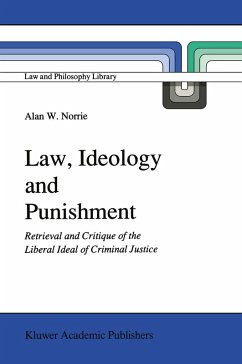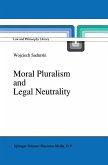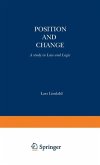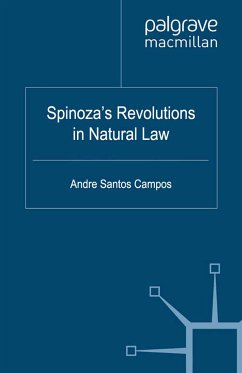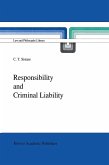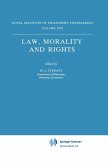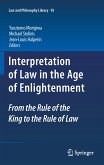Dieser Download kann aus rechtlichen Gründen nur mit Rechnungsadresse in A, B, BG, CY, CZ, D, DK, EW, E, FIN, F, GR, HR, H, IRL, I, LT, L, LR, M, NL, PL, P, R, S, SLO, SK ausgeliefert werden.
I would judge his contribution to our understanding of the philosophy of punishment to be among the most important to emerge in the last twenty years.
A most perceptive treatment of a socially and legally relevant issue.
I am particularly impressed by the skilful textual analysis ... and ... ability to relate classical political philosophy to contemporary issues ... It is critical scholarship at the best, incisive and relevant. It makes us sit up and re-assess conventional dogma, and anything that does that deserves praise and wide exposure.'
Michael Freeman, University College, London
` One of the most important contributions to the philosophy of of punishment in the last twenty years. '
Nicola Lacey, New College, Oxford
` His interpretations ... are always marked by penetration and acuity ..., are always interesting because they are carried out with great analytical skill and precision ... an author gifted with great critical skill ... a real and commendable achievement. ' (translation)
Professor Dr Rainer Raczyk, Heidelberg (Goltdammer's Archiv Strafrecht 1991)
` a scholarly and interesting work ... His is a good, careful and serious book. It is worthy both for its scholarship and for its integrity in putting forward carefully worked out views which, in this postmodern age, are perhaps not fashionable. It has broadened the scope of the modern debate because it has respected that [liberal] tradition.'
Zenon Bankowski, University of Edinburgh (Modern Law Review 1992, 55)
` This is a provocative and challenging book, which deserves careful attention from anyone who takes seriously the question of whether, and how, our system of criminal justice can be justified ... One of the signal merits of this book ... is that it forces us to confront the uncomfortable possibility that we cannot hope to make rational normative sense of our existing legal institutions. '
Professor Antony Duff, University of Stirling (Criminal Law Review 1992)

